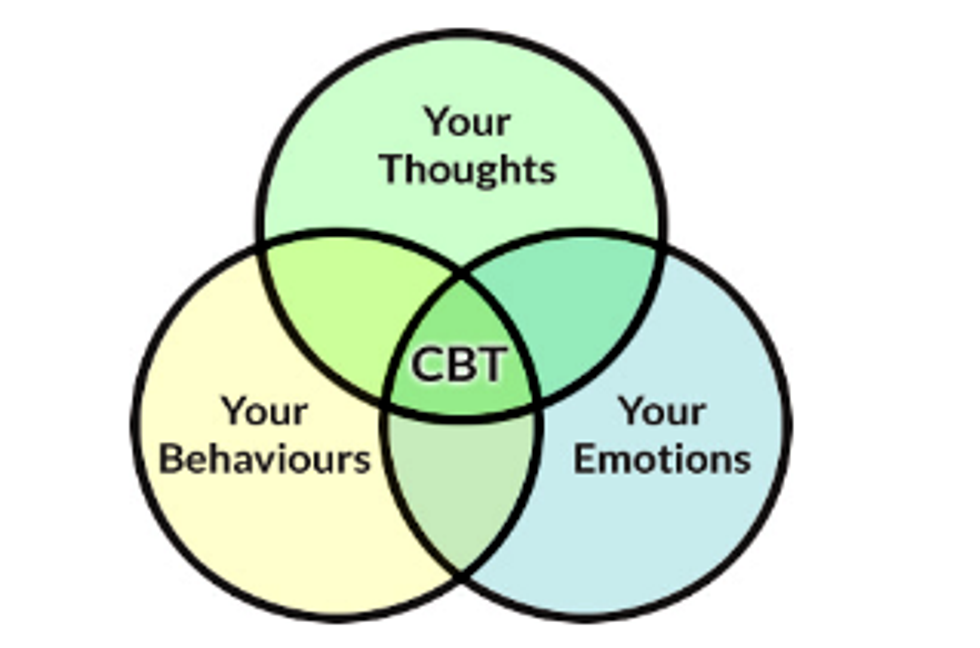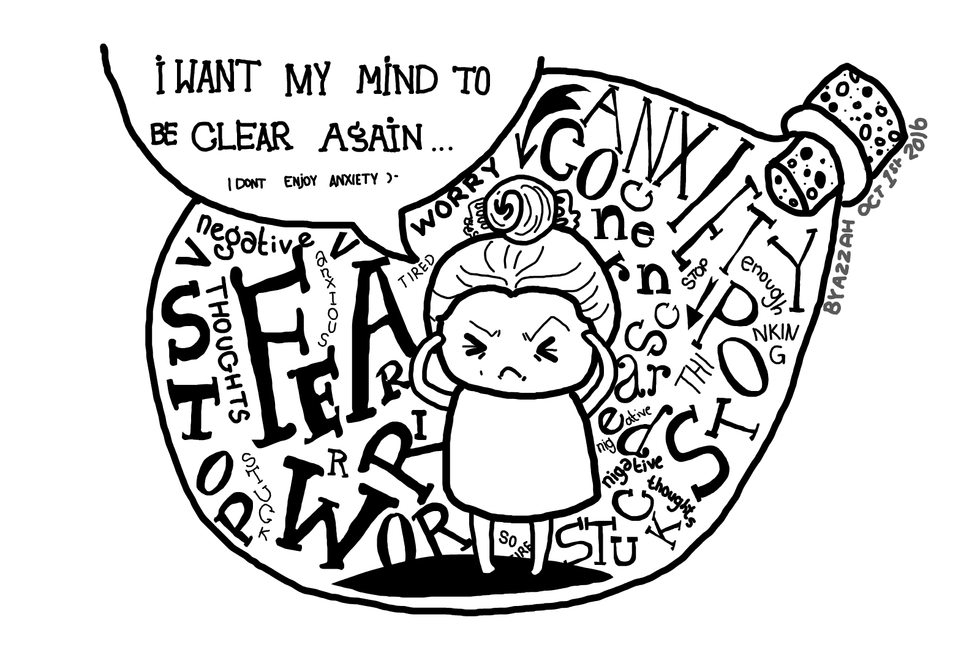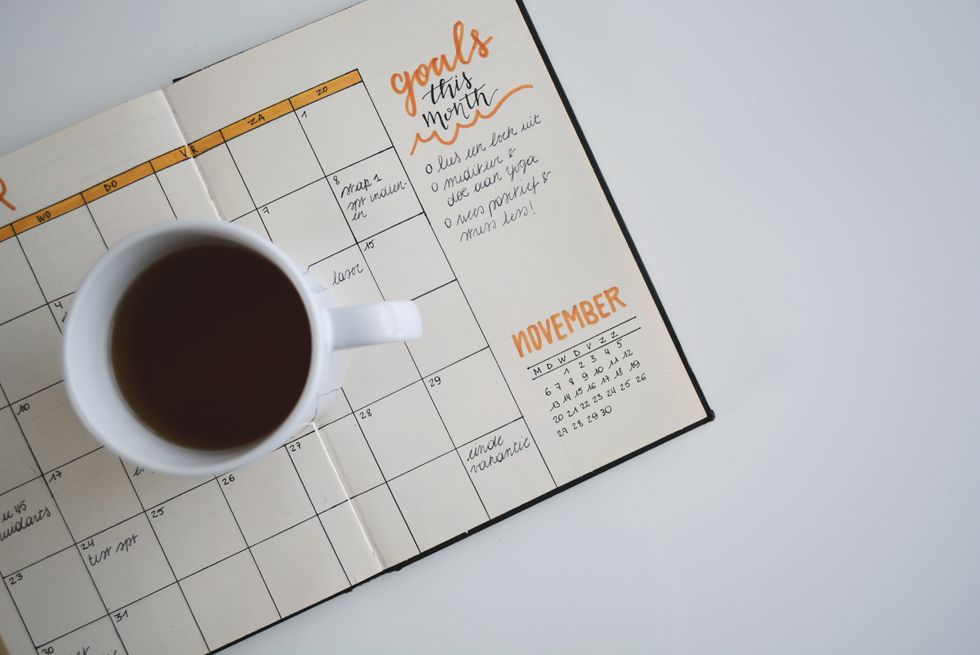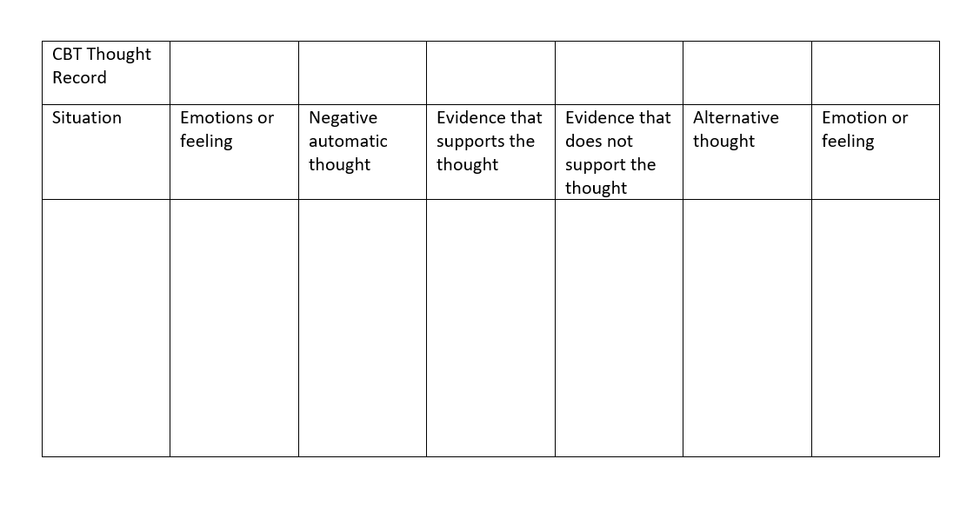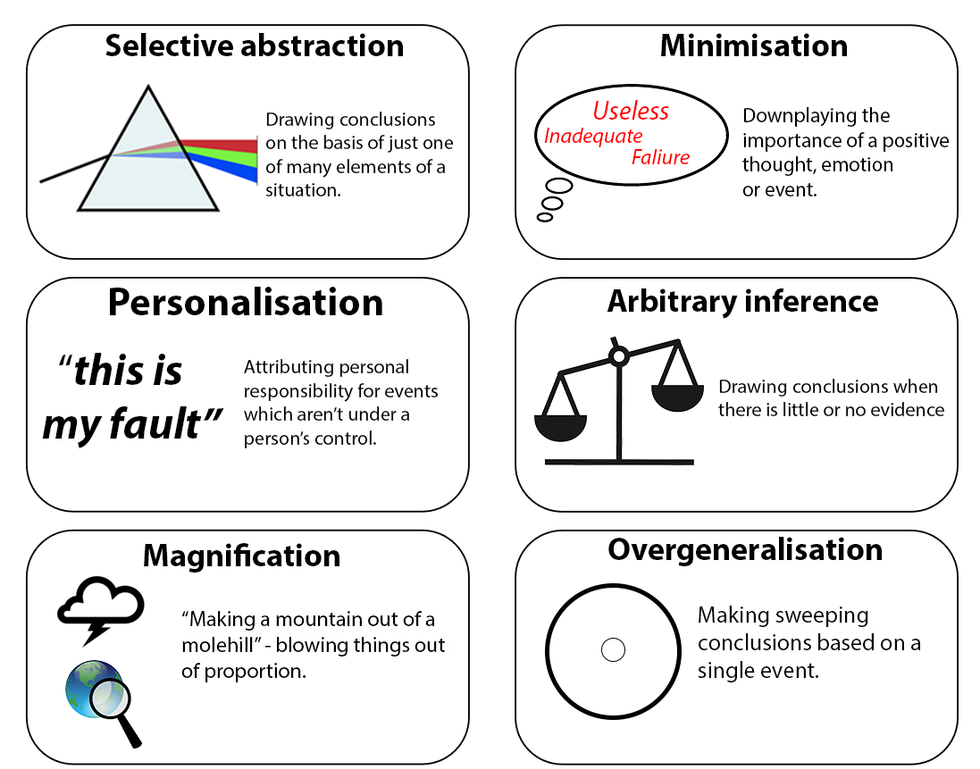When it comes to anxiety, some coping techniques just serve as band-aids or temporary fixes for the problem. Bubble baths, exercise, and essential oils are great but don't get to the root of the issue. There is a lot of evidence to show that CBT is an effective treatment for anxiety. For me, CBT has helped me get my anxiety under control and to recognize unhelpful thoughts.
What is CBT?
The idea behind Cognitive Behavioral Therapy is that what you think and do affects the way you feel. CBT works with thoughts and feelings that are happening now.
Sometimes we get stuck in cycles that can drag us down. Starting off with a negative thought like “I’m useless” or “No one likes me” leads to feeling sad, which can lead to feeling tired, which can lead to someone cutting off from other people to fewer good things happening. This is a rough train to get on and it's hard to know how to get off.
The goal of CBT is to find out what gets us stuck in these thought cycles. Making changes in the way we think can improve the way we feel.
So when you look at a situation, there are different parts to consider:
Thoughts: What was going through your mind?
Emotions: What were you feeling?
Bodily Sensations: What was going on in your body?
Behaviors: What did you do? How did you react?
Goal Setting
It is important to set goals for yourself when starting CBT. This will help you stay motivated and keep you on track.
For example, your goal could be to decrease anxiety while at school.
Coping Statement
This is a statement you can tell yourself when feeling anxious or in need of reassurance. For example, you can tell yourself "It's just my anxiety, it is normal, and it will pass."
Thought Record
A thought record is a way to keep track of what goes through your mind and track down why you might feel a certain way.
To start a thought record, you record your hot thought. A “hot thought” is a thought that is one that is most likely to change our mood. An example of a hot thought might be "I made a mistake at work."
Situation - who, what, where, when
Moods - Describe each mood in one word. Rate the intensity from 0 to 100%.
Automatic thoughts - What am I afraid might happen? What was going through my mind?
Evidence that supports the hot thought - Write factual evidence to support this conclusion.
Evidence that does not support the hot thought - It is important that the list of evidence against the hot thought is longer than your evidence in support. Have I had any experiences to show that this thought is not completely true all the time? Am I blaming myself for something over which I do not have complete control?
After you have some evidence against your hot thought, you can create a new coping statement catered to your current situation. An example could be "I may have made a mistake at work, but I have learned from this and will be better in the future." This technique admits that there may be some negative truth in your thoughts, but helps bring you back to reality and puts the situation in a more positive light.
Unhelpful thinking styles
Unhelpful self-statements or thoughts usually cause us to feel unhelpful emotions such as depression or anxiety. This unhelpful thought pattern is called “unhelpful thinking styles.”
These patterns can help you understand your thinking tendencies.
Postpone your worry
Worries can happen at any time without any obvious triggers. Worrying can interfere with our productivity and life. A strategy to cope with this is to postpone your worries. As strange as this sounds, it will help worries be less intrusive and help you gain a greater sense of control.
To start, create a worry period. For example, plan from 6 pm to worry for 15 minutes in the laundry room. Time, place, and duration should be the same every day. Avoid using your bedroom and don’t set your worry period too close to bedtime.
Postpone your worries to the worry period. Remind yourself that you can worry about it later. There are more important or pleasant things to do right now. Distract yourself with a practical, positive, or pleasant task. Avoid writing down your worries, it can become a long list and defeat the purpose.
Come back to your worries at the designated worry period: If your previous worries are no longer bothering you or are no longer relevant, no further action is required. Don’t spend longer than 15 minutes on your worries. You will likely find it hard to fill the entire time.
I hope that you benefit from this new knowledge of CBT and these techniques will help you with your good days and hard days.


